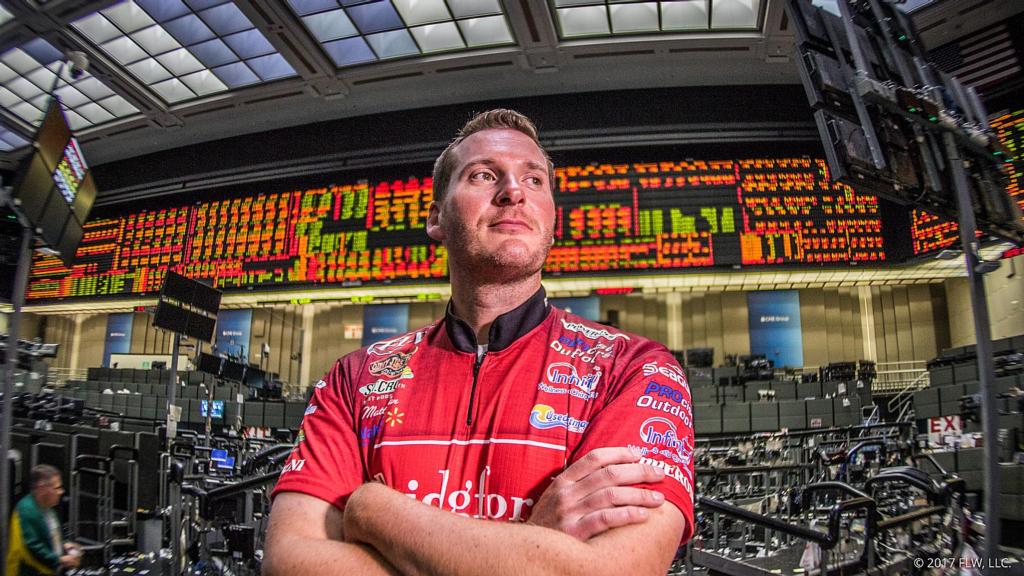How Do You Value Yourself?
Basic advice for approaching potential sponsors

(The writer's opinions and observations expressed here are his own, and do not necessarily reflect or represent the views, policies or positions of FLW.)
The most common questions I get from aspiring fishermen are about how to obtain sponsors and the industry norms when it comes to negotiating deals with them. All are great questions, but there are no simple answers. That’s because there is no right or wrong approach. Every professional goes about it differently. I’d like to give you my thoughts on the subject.
In terms of obtaining sponsors, I can best compare the process to trying to get a job in just about any other industry. When I worked in the corporate world, we would literally get hundreds of applications for an open position. I’d spend hours quickly going through each one to try and identify one or two key points in a resume that I thought might make a person an ideal candidate for that job. From the hundreds of applications we might select five to interview in person. The rest got thrown in the garbage. Along with the five candidates that we selected to interview from resumes, we usually interviewed an equal number of applicants that were referred by other employees. In the majority of the situations, the job opening was filled with one of the referrals. Most managers would rather take the referral of a trusted employee than an unknown candidate. It’s unfortunate that a lot of good people got turned down, but that’s just how the corporate world works.
The fishing industry is the same way. Each company has a limited number of sponsorships available, and more times than not, they will fill the positions with people they know or that have been referred to them. I can’t imagine how many resumes a pro-staff manager gets on a weekly basis. It’s not a position I would like to be in. That person knows that the individuals he or she selects to be on the pro-staff will reflect on the company, and a poor choice could cost them the job. That’s why it’s so much easier to choose individuals they have met along the way or that have been referred by other fishing contacts. They know what they are getting versus selecting someone from a pile of resumes.
Having said all of that, my approach to obtaining sponsors is simple. I want to align myself with companies whose products I whole-heartedly believe in and feel like give me an advantage over the competition. I’ll reach out to them directly and let them know how much I love their product. Sometimes we work out a deal quickly. Other times it takes years to build a relationship before it evolves into something more. Companies want to know that you use their products, and most importantly, can help sell their products.
There are a lot of people out there fishing for sponsorships. They send resumes to every rod, reel and lure company on the market, hoping to get a deal from somebody, but might have never used a product made by most of those companies. In my opinion, that’s not good for anybody. Align yourself with the companies you want to work with. In the end, the results for everyone will be much better.
When it comes time to negotiate, there really isn’t an industry norm. Not all anglers get the same deals. There is differentiation between angler skill level, marketability, social media presence and individual valuation. Obviously, top-tier fishermen should be able to negotiate better deals than local anglers. They have significantly more impact on sales than the majority of other fisherman and deserve to be recognized for that.
The biggest challenge for anglers is deciding how to value themselves. Some anglers are willing to do a lot for nothing, and other anglers are willing to do almost nothing for a lot. Why is this? The way they value themselves differs. You need to consider how much time, money and effort will go into satisfying your sponsor.
For example, what do you do if a company offers you free product, but in return wants you to work several days behind their booth at trade shows, make multiple social media posts and write quarterly product review articles. All of that would total up to roughly 40 hours of your time. If you only use $200 worth of their product a year, is it worth 40 hours of your time? That’s an hourly wage of $5 per hour, which is less than minimum wage. What if you have to pay your own travel expenses for the trade shows? Then you might actually be losing money. However, in that same scenario, if you use $3,000 worth of product you might think it’s a better deal.
Ultimately, we all value ourselves differently, and it is up to you to figure out what you’re worth. There might be times you are willing to devalue yourself to get your foot in the door with a company, or there might be times you raise your value if you feel like you are being asked to do more than you are comfortable with. This is how I go about building my sponsor portfolio and believe that if more fishermen started doing this they would be as happy and proud to represent the companies they are aligned with as I am.